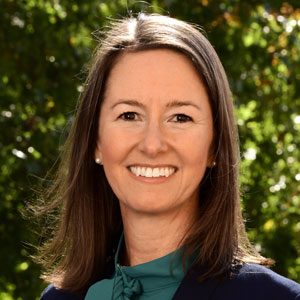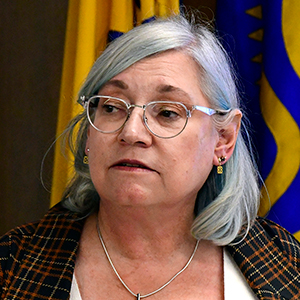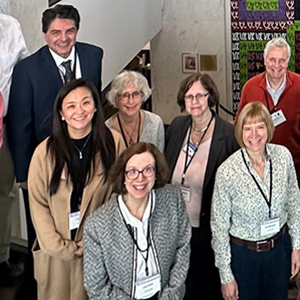Wildfires, extreme weather, and rising sea levels often seem to grab news headlines, but in my view, less attention is paid to how such climate change-related events can affect human health in immediate and profound ways — and what can be done about it.
Whether the problem is heat-related illness, heightened severity of allergies, or transmission of malaria and Lyme disease, scientists have connected the dots back to our changing climate.
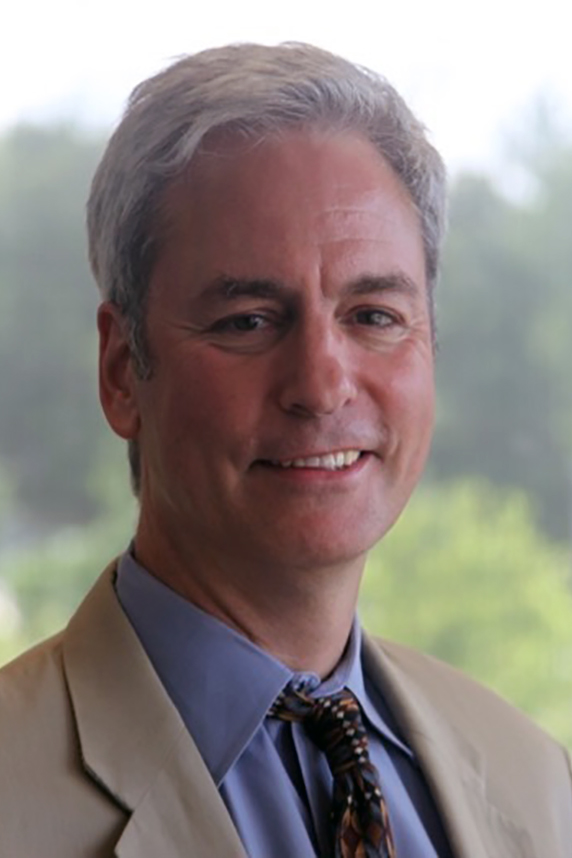 “For our efforts to be successful, we will need to leverage health and exposure data, as well as information from weather monitoring and prediction systems,” said Rosenthal. (Photo courtesy of Joshua Rosenthal)
“For our efforts to be successful, we will need to leverage health and exposure data, as well as information from weather monitoring and prediction systems,” said Rosenthal. (Photo courtesy of Joshua Rosenthal)I recently spoke with Fogarty International Center Senior Scientist Joshua Rosenthal, Ph.D., and NIEHS Senior Advisor for Public Health John Balbus, M.D., about a NIH wide working group on climate change and human health that they co-lead.
Rosenthal and Balbus explained why the time is right for an NIH-wide focus on addressing health effects of climate change. They described how environmental health scientists working with experts from other fields can fill key research gaps and help tackle major diseases studied across the 27 NIH institutes and centers.
Linking climate, human health
Rick Woychik: For many in the scientific community, it is clear that agencies such as the U.S. Environmental Protection Agency and the National Oceanic and Atmospheric Administration should be involved in climate change research. It may be less clear how NIH fits in or what role human health research can play. Can you explain that connection?
John Balbus: Climate and weather can significantly influence our health, and that has been known since the ancient Greeks.
In recent years, just as one example, we have seen dramatic increases in extreme weather events such as hurricanes, both in the United States and across the world. There have been devastating impacts as individuals — often the most vulnerable in society — have been displaced, or exposed to chemicals or infectious pathogens in flood waters.
So, NIH has an important role in building an understanding of what is going on now. But circumstances will evolve over time, which is why it is also critical to try to understand what health effects will be coming in the future.
More than emissions
Joshua Rosenthal: Climate change research is often viewed as a matter of slowing greenhouse gas emissions, and the health science community has not really had a big role in that set of activities. However, there is growing recognition that climate change is causing health problems and that actions to address it offer potentially huge health benefits, as well as some risks. We need to find ways to respond effectively and boost resilience.
To John’s point about future health effects, I think we are just beginning to understand the transformation of the world's energy systems that is happening right now. This involves a rapid expansion in renewable technologies, including energy storage, and potentially enormous geoengineering projects to mitigate climate change. But very little attention has been paid to understanding the health consequences of such transformation.
Studies show that these changes, by reducing air pollution from fossil fuel combustion and possibly promoting more plant-based diets, have the potential to vastly improve health and save millions of lives. However, there are also potential downsides.
For example, we will likely face a larger electronic waste problem, with hundreds of millions of solar panels and batteries at the end of their useful life; increased air pollution from greater use of wood burning stoves; and unpredictable health effects from large-scale efforts to reabsorb carbon dioxide. The health science community has an important role here to ensure that lifestyle and energy system changes support public health rather than injure it.
The poor bear the burden
RW: In the U.S., climate change seems to disproportionately affect socially disadvantaged populations. Abroad, it takes a major toll on individuals in developing countries. Can you comment on these health disparities?
 Advancing research into climate change and human health will require an all-hands-on-deck scientific approach and the participation of many U.S. agencies. (Image courtesy of NIEHS)
Advancing research into climate change and human health will require an all-hands-on-deck scientific approach and the participation of many U.S. agencies. (Image courtesy of NIEHS)JR: In a sense, there's no surprise here. Health threats from climate change hit children, the elderly, the poor, and the disenfranchised — especially those in low- and middle-income countries — harder than those of us who are well-off enough to insulate ourselves through technology, housing, health services, and so forth.
People in those countries, who often have poor nutrition and who are exposed to pollution and extreme weather, have a much higher burden of infectious and chronic disease, as well as trauma. Whether we are talking about flooding in Pakistan or high levels of air pollution in sub-Saharan Africa, the burden of climate change is far greater in those places than in Western countries.
JB: Mental health also is important to consider. Individuals who live through extreme weather events, natural disasters, and other climate change-related scenarios can experience post-traumatic stress disorder, depression, and anxiety as they grapple with loss of loved ones and property, and other major life disruptions.
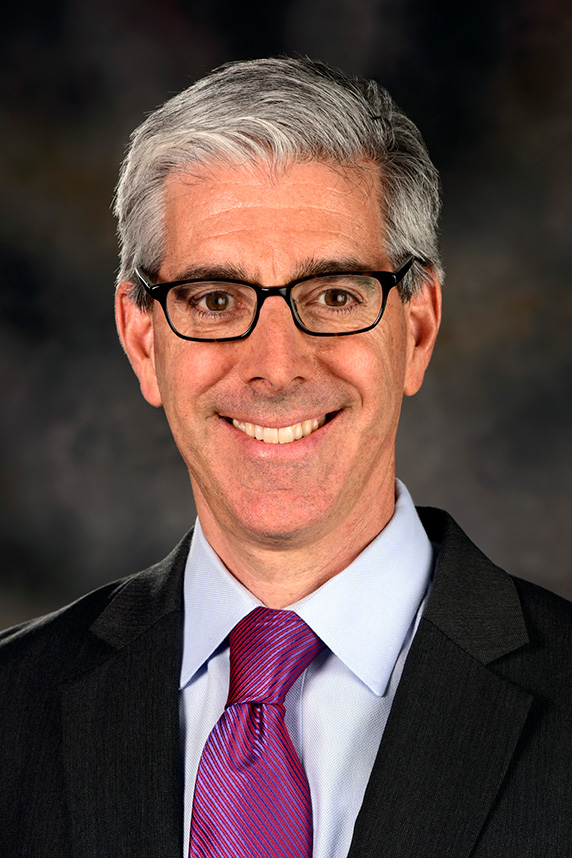 “A major goal of the working group is to put together an ambitious and comprehensive research plan that is informed by insights from the field of public health,” said Balbus. (Photo courtesy of Steve McCaw / NIEHS)
“A major goal of the working group is to put together an ambitious and comprehensive research plan that is informed by insights from the field of public health,” said Balbus. (Photo courtesy of Steve McCaw / NIEHS)Thinking broadly
RW: Can you discuss your NIH wide working group? What do you hope to accomplish?
JB: One thing we noticed as we brought the working group together is that our colleagues were raising issues that we hadn’t considered before, such as how climate change-related alterations in plants and ecosystems are affecting the nutritional value of foods and botanicals. There is significant interest in thinking about climate change more broadly and developing ways to harness expertise from across the institutes and centers.
Take NIEHS as an example. We have a strong focus on understanding and assessing how environmental exposures, including those related to climate change, affect human health. But the exposure side of climate change is very complex, and it requires integration of data from many research areas. Collaboration is critical, and that is what the working group aims to promote.
We want the group to be a productive planning space for all of NIH to come together and think about how to address climate change through research and innovation.
Support grows
JR: Climate change and extreme weather either indirectly or directly affect most of the diseases and biological systems of interest to NIH. So, all of the institutes, in a sense, have a stake in the issue. Besides, the problems are so big and so complex that no institute could begin to address them alone.
That is why we were thrilled that six institute directors, as well as about 90 researchers and senior leaders, expressed active interest in our working group. Going forward, I believe many others will see this effort as an important way to advance scientific knowledge and really move forward on the NIH mission to improve health.
Silver linings
RW: As we have discussed, the health burden caused by climate change is significant, and it often is borne by individuals who are most disadvantaged. Do you see any reasons to be optimistic?
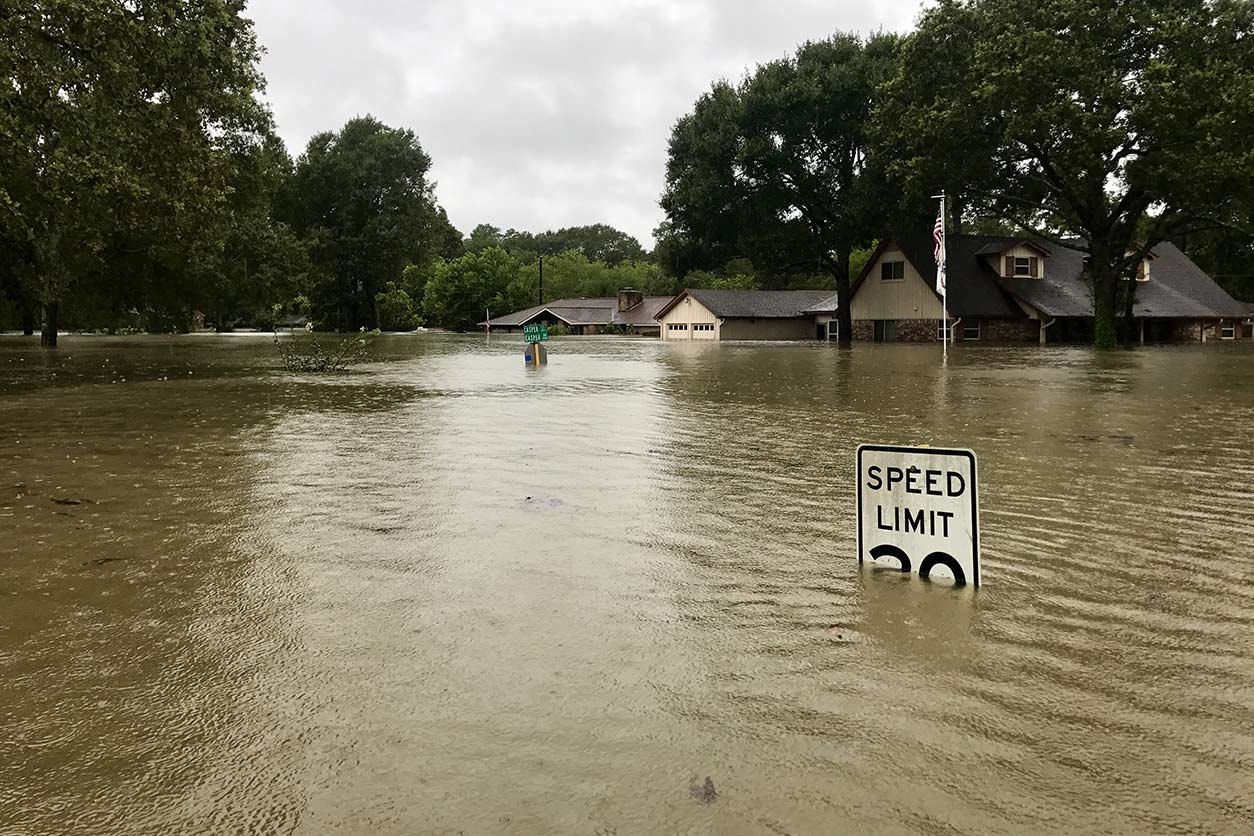 “I am hopeful that the working group will help to expand knowledge about how extreme weather and other climate factors affect our health and potentially contribute to disease,” Woychik said. (Photo courtesy of MDay Photography / Shutterstock.com)
“I am hopeful that the working group will help to expand knowledge about how extreme weather and other climate factors affect our health and potentially contribute to disease,” Woychik said. (Photo courtesy of MDay Photography / Shutterstock.com)JR: Two things give me hope. On the scientific side, advances in our digital infrastructure and the sophistication of our analytical tools have provided us the ability to do predictive scenario development — that is, more complex climate change and health effects modeling.
The second reason I am optimistic has to do with the resolve of many people around the world, including people in leadership positions, to tackle climate and health as an interconnected issue.
JB: I am going to agree with that perspective and provide a slightly different take.
Our ability to survive and thrive as a species is going to depend on two things. One involves scientific progress, which Josh mentioned. But also important is the ethical and spiritual side.
Ultimately, the will to address climate change is tied to a commitment to lifting up the most vulnerable people now and living on the planet in a way that ensures the well-being of future generations.
I believe that today we are seeing that kind of ethical and spiritual shift take place, which is why I am optimistic that our scientific progress can be harnessed to improve health outcomes.
(Rick Woychik, Ph.D., directs NIEHS and the National Toxicology Program.)





